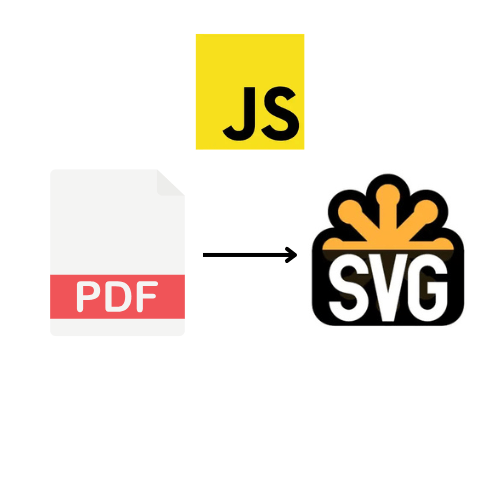Introduction
This tutorial explains how to convert PDF files to SVG in Javascript using the hosted BuildVu Cloud API, including examples such as:
- The IDRsolutions trial or cloud subscription service
- Your own self-hosted BuildVu microservice instance
Although the above services can be accessed using standard HTTP requests, this tutorial uses our open-source JavaScript IDRCloudClient, which offers a straightforward JavaScript wrapper for the REST API.
Why SVGs Work Better with JavaScript
SVGs are better for JavaScript developers than PDFs for display because SVG files are native to the web, scalable without loss of quality, and can be easily styled or animated with JavaScript and CSS.
Developers can embed SVG directly into HTML, customize it dynamically, and create interactive or responsive graphics, while PDFs are less flexible, mainly intended for print or document preservation and not directly manipulated in-browser.
Prerequisites
To add the client to your project, include the file idrcloudclient.js and add the following line to enable access to it:
<script src="path/to/idrcloudclient.js" type="text/javascript">
Code Example
Below is a simple code example showing how to convert PDF files to SVG. Additional configuration options and advanced features are detailed later in this guide.
var endpoint = 'https://cloud.idrsolutions.com/cloud/' + IDRCloudClient.BUILDVU;
var parameters = {
//token: 'Token', //Required only when connecting to the IDRsolutions trial and cloud subscription service
input: IDRCloudClient.UPLOAD,
file: 'path/to/exampleFile.pdf'
}
function progressListener(e) {
console.log(JSON.stringify(e));
}
function failureListener(e) {
console.log(e);
console.log('Failed!');
}
function successListener(e) {
console.log(JSON.stringify(e));
console.log('Download URL: ' + e.downloadUrl);
}
IDRCloudClient.convert({
endpoint: endpoint,
parameters: parameters,
// The below are the available listeners
progress: progressListener,
success: successListener,
failure: failureListener
});
You can find an example that uses the JavaScript client here.
Return result to a callback URL
The BuildVu Microservice accepts a callback url to send the status of a conversion on completion. Using a callback url removes the need to poll the service to determine when the conversion is complete.
The callback url can be provided to the parameters variable as shown below.
var parameters = {
//token: 'Token', //Required only when connecting to the IDRsolutions trial and cloud subscription service
input: IDRCloudClient.UPLOAD,
callbackUrl: 'http://listener.url',
file: 'path/to/exampleFile.pdf'
}
Configuration Options
The BuildVu API accepts a stringified JSON object with key-value pair configuration options to customize your conversion. These settings should be included in the parameters array. A complete list of configuration options for converting PDF files to SVG is available here.
settings: '{"key":"value","key":"value"}'
Upload by URL
In addition to uploading a local file, you can also provide a URL for the BuildVu Microservice to download and convert. To do this, replace the input and file values in the parameters variable with the following:
input: IDRCloudClient.DOWNLOAD
url: 'http://exampleURL/exampleFile.pdf'
Using Authentication
If your deployed BuildVu Microservice requires authentication to convert PDF files to SVG, you must include a username and password with each conversion request. These credentials are passed as username and password variables to the convert method, as shown below.
username: 'username',
password: 'password',
We can help you better understand the PDF format as developers who have been working with the format for more than 2 decades!
BuildVu allows you to
| View PDF files in a Web app |
| Convert PDF documents to HTML5 |
| Parse PDF documents as HTML |
What is BuildVu?
BuildVu is a commercial SDK for converting PDF files into standalone HTML or SVG.
Why use BuildVu?
BuildVu allows you to integrate PDF into your HTML workflow effortlessly and securely by producing clean HTML that is easy for developers to work with.
What licenses are available?
We have 3 licenses available:
Cloud for conversion using the shared IDRsolutions cloud server, Self hosted server option for your own cloud or on-premise servers, and Enterprise for more demanding requirements.
How to use BuildVu?
Want to learn more about BuildVu and how to use it, we have plenty of tutorials and guides to help you.
